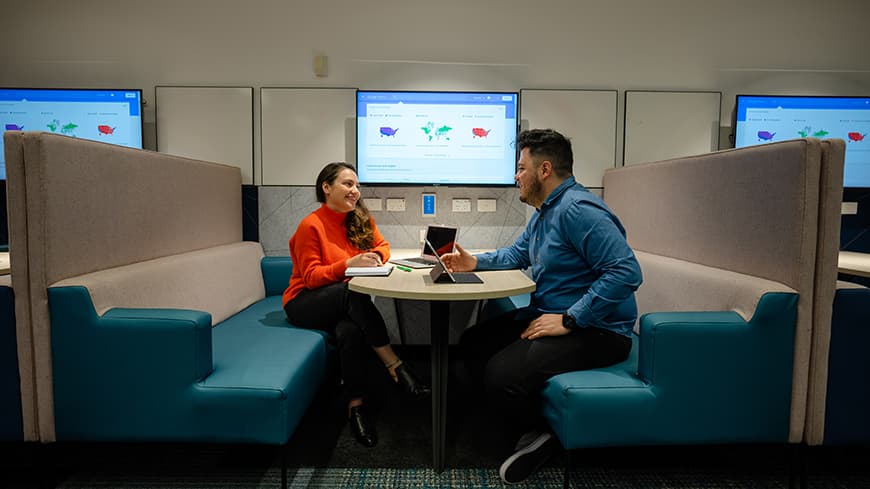 Students at the School of Business and Law at ECU\'s Joondalup Campus.
Students at the School of Business and Law at ECU\'s Joondalup Campus.
You've probably heard people talk about 'soft skills'. We don't know why someone thought that was a good name for it, because these skills can be 'hard' to learn.
So let's call them employability skills.
Of course, employers want people who can do skilled work, especially if they've had practical experiences during their uni study and can show this in their résumé.
But they also want people who can be relied upon to manage their own time and can meet deadlines.
People who are good at communicating with customers and who can work well in a team are also top of their list.
Often, it's about your attitude to work that matters most to an employer, rather than other specific skills.
Build your skills while you study
ECU's lecturers and other teaching professionals are committed to helping our students develop their employability skills.
It's built into courses and units you'll study here.
Different courses may use different language to describe these skills in their Course Learning Outcomes and Unit Learning Outcomes. However, the aim is for all students to be able to demonstrate and articulate their achievements and abilities in these areas.
You'll also have the opportunity to participate in what we call 'Work Integrated Learning' or WIL, during your course. This is where you could complete a practicum placement with an employer, giving you some real-world experience in your study area.
WIL also tests you on how well you engage in that work and how you interact with the people you work with.
So when you finally leave our university, you not only take with you a shiny new qualification, but also real skills to improve your employment prospects.
What are the core skills for work?
A few years ago, a group of government agencies developed what's called the 'Core Skills for Work Framework'.
The framework describes a set of non-technical skills that support your ability to successfully participate in work – either as an employee, as someone who is self-employed, or as a volunteer.
The framework includes these 10 employability skills:
- Manage career and work life
- Work with roles, rights and protocols
- Communicate for work
- Connect and work with others
- Recognise and utilise diverse perspectives
- Plan and organise
- Make decisions
- Identify and solve problems
- Create and innovate
- Work in a digital world
It's quite a list. And while you may have already developed skills in some of them, at least you know that if you study a course at ECU, we'll make sure you tick off all of them and maybe more!

 New students attending an orientation lecture on ECU's Joondalup Campus.
New students attending an orientation lecture on ECU's Joondalup Campus.


